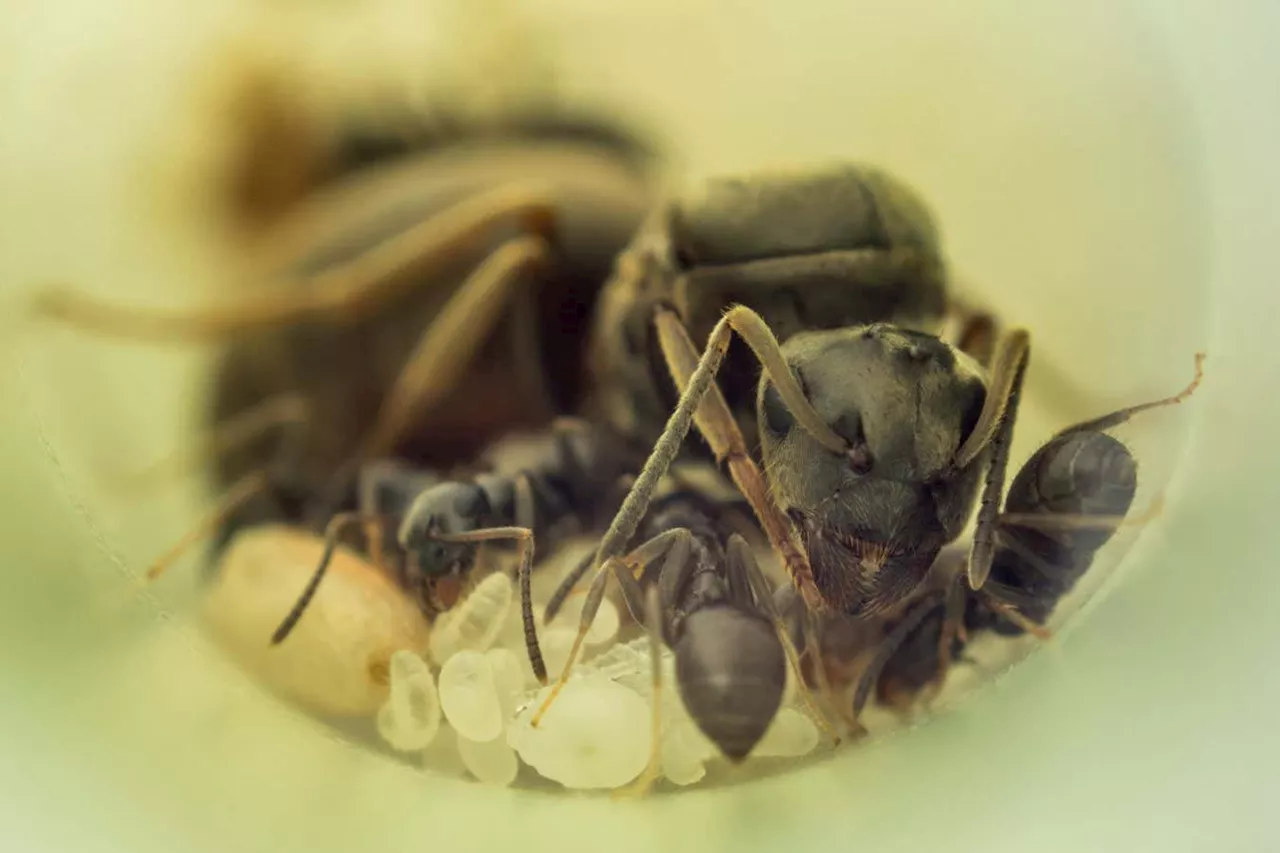Feasting on family members may be an unorthodox way for ant queens to keep their fledgling colonies from being overrun by lethal fungi
When black garden ant queens notice their young are sick, they eat them before the illness spreads to the rest of the nest.queen may not win any “mother of the year” awards, but the strategy could be an effective way to protect her kingdom, research suggests. The findings provide insights into the evolution of “filial cannibalism”, the practice of parents consuming their offspring.at the University of Oxford.
The queens ate 92 per cent of their sick young, but only 6 per cent of the uninfected larvae, showing they could detect the infection and intervene. Failing to catch the infection could have disastrous consequences. When the team exposed colonies to very infectious larval cadavers sprouting with spore-producing fungi, all the broods died. And only 20 percent of the queens survived, even after they sprayed the corpses with acidic, antimicrobial venom.
Eating the sick babies yields other benefits too. The researchers found queens that ate their sick young went on to lay 55 per cent more eggs than those that didn’t, suggesting they had recycled those caloric resources. This advantage, plus the removal of disease risk, might illustrate a way filial cannibalism could evolve in some species, the researchers argue.
The findings suggest the behaviours necessary for caring for young and for disease protection in fledgling colonies overlap. As a result, Bizzell and Pull argue that worker ants’ disease-preventing behaviour could have evolved from the kind of generalised parental care seen in many types of insects.
